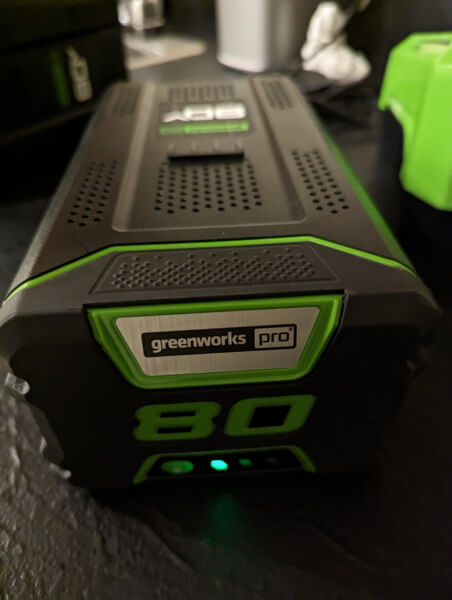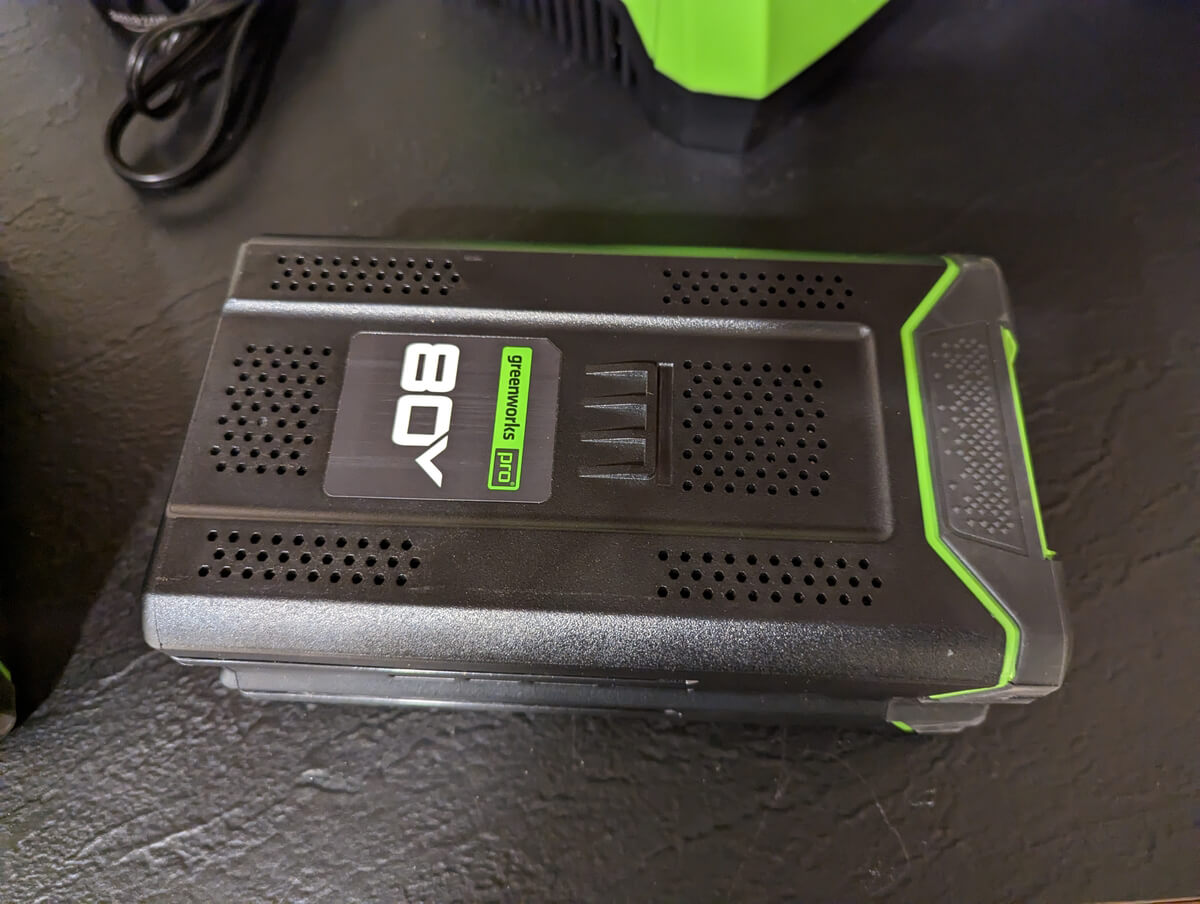Have you ever wondered if lithium-ion batteries go bad if not used? The answer is yes, they can. Lithium-ion batteries are commonly used in electronic devices such as smartphones, laptops, tablets but also larger equipment like blowers, mowers, etc.. While they are known for their long lifespan, they can still degrade over time, especially if they are not used or stored properly.
If you have a lithium-ion battery that you are not using, it is important to store it properly to prevent it from degrading. A damaged battery can fail to charge (sometimes shown with a solid red light on the charger). Lithium-ion batteries should be stored in a cool, dry place (I keep mine in my garage) with a charge level of around 50%. This will help prevent the battery from discharging completely or overcharging, which can both lead to degradation. It is also important to use the battery regularly, even if you are not using the device it is in. This will help keep the battery active and prevent it from degrading due to lack of use.
What Happens to Lithium-ion Batteries When Not Used?
If you have a lithium-ion battery that is not being used, it can still go bad over time. Lithium-ion batteries are designed to be used and recharged regularly, and leaving them unused for long periods can cause them to degrade or even become unusable. Here are some things that can happen to lithium-ion batteries when they are not used:

Self-Discharge
Lithium-ion batteries can lose their charge over time, even when they are not being used. This is called self-discharge, and it can happen even if the battery is not connected to anything. The rate of self-discharge depends on the battery’s temperature and the age of the battery. If a lithium-ion battery is left unused for too long, it can lose its charge completely, and it may not be able to be recharged.
Capacity Loss
If a lithium-ion battery is not used for an extended period, it can also experience capacity loss. This means that the battery’s ability to hold a charge decreases over time, even if it is recharged regularly. Capacity loss can be caused by a variety of factors, including self-discharge, high temperatures, and age.
Internal Resistance Increase
Another issue that can occur when a lithium-ion battery is not used is an increase in internal resistance. Internal resistance is the resistance that the battery’s internal components create to the flow of electricity. As a lithium-ion battery ages, its internal resistance increases, which can cause it to become less efficient and less able to deliver power.
In summary, lithium-ion batteries can go bad if they are not used regularly. Self-discharge, capacity loss, and an increase in internal resistance are all issues that can occur when lithium-ion batteries are left unused for long periods. To help prevent these issues, it is recommended that you use and recharge your lithium-ion batteries regularly, even if you are not using the device that the battery powers.
Factors That Affect Battery Life
When it comes to lithium-ion batteries, there are several factors that can affect their lifespan, even if they are not being used. In this section, we will explore the most common factors that can impact the life of your battery and what you can do to extend its lifespan.
Temperature
Temperature is one of the most significant factors that can affect the life of your lithium-ion battery. High temperatures can cause the battery to degrade faster, while low temperatures can reduce its capacity. Ideally, you should store your battery at room temperature, which is around 68-77°F (20-25°C).
If you need to store your battery for an extended period, it is best to keep it in a cool, dry place. Avoid exposing it to direct sunlight or extreme temperatures, such as in a car parked outside on a hot day.
Charge Level
The charge level of your battery can also affect its lifespan. If you leave your battery fully charged for an extended period, it can cause the battery to degrade faster. On the other hand, if you let it discharge completely, it can also damage the battery.
To extend the life of your battery, it is best to keep it at around 50% charge when not in use. If you need to store it for an extended period, you should recharge it to around 50% every three months.
Self-Discharge
All batteries experience self-discharge, which is the gradual loss of charge over time. Lithium-ion batteries have a relatively low self-discharge rate, but it can still impact their lifespan if left unchecked.
If you plan to store your battery for an extended period, it is best to recharge it to around 50% every three months to prevent excessive self-discharge. You can also use a battery management system to monitor your battery’s charge level and prevent it from discharging too much.
In conclusion, several factors can impact the lifespan of your lithium-ion battery, even if it is not being used. By keeping it at the right temperature, charge level, and preventing excessive self-discharge, you can extend its lifespan and get the most out of your battery.
How to Store Lithium-ion Batteries
If you want to extend the life of your lithium-ion batteries, proper storage is crucial. Here are some best practices to follow when storing your lithium-ion batteries.
Charge Level
Unlike other battery types, lithium-ion batteries do not like being stored at high charge levels. Charging and then storing them above 80% hastens capacity loss. Therefore, it is best to store them at a charge level between 40% and 60%. If you plan on storing your batteries for an extended period, you should discharge them to around 40% of their capacity before storing them.
Temperature
It is best to store lithium-ion batteries at room temperature. Avoid long periods of extreme cold or hot temperatures, such as leaving them in a car parked in direct sunlight. Long periods of exposure to these temperatures can result in battery damage. A Lithium Ion battery will self-discharge 5% in the first 24 hours after being charged and then 1-2% per month. If the battery is fitted with a safety circuit (and most are) this will contribute to a further 3% self-discharge per month.
Humidity
Lithium-ion batteries should be stored in a dry environment. High humidity can cause corrosion and damage to the battery’s internal components. If you live in a humid environment, consider storing your batteries in an airtight container with a desiccant to absorb moisture.
In summary, to store your lithium-ion batteries properly, keep them at a charge level between 40% and 60%, store them at room temperature, and keep them in a dry environment. By following these simple guidelines, you can extend the life of your lithium-ion batteries and ensure they are ready to use when you need them.

Kevin Brighton is a father of 2 boys ages 9 and 3. Other than being a handy townhouse homeowner, he also takes care of rental properties for investors (a lot of quick fixes, rarely serious construction). Every tool reviewed in this website was manually tested.

